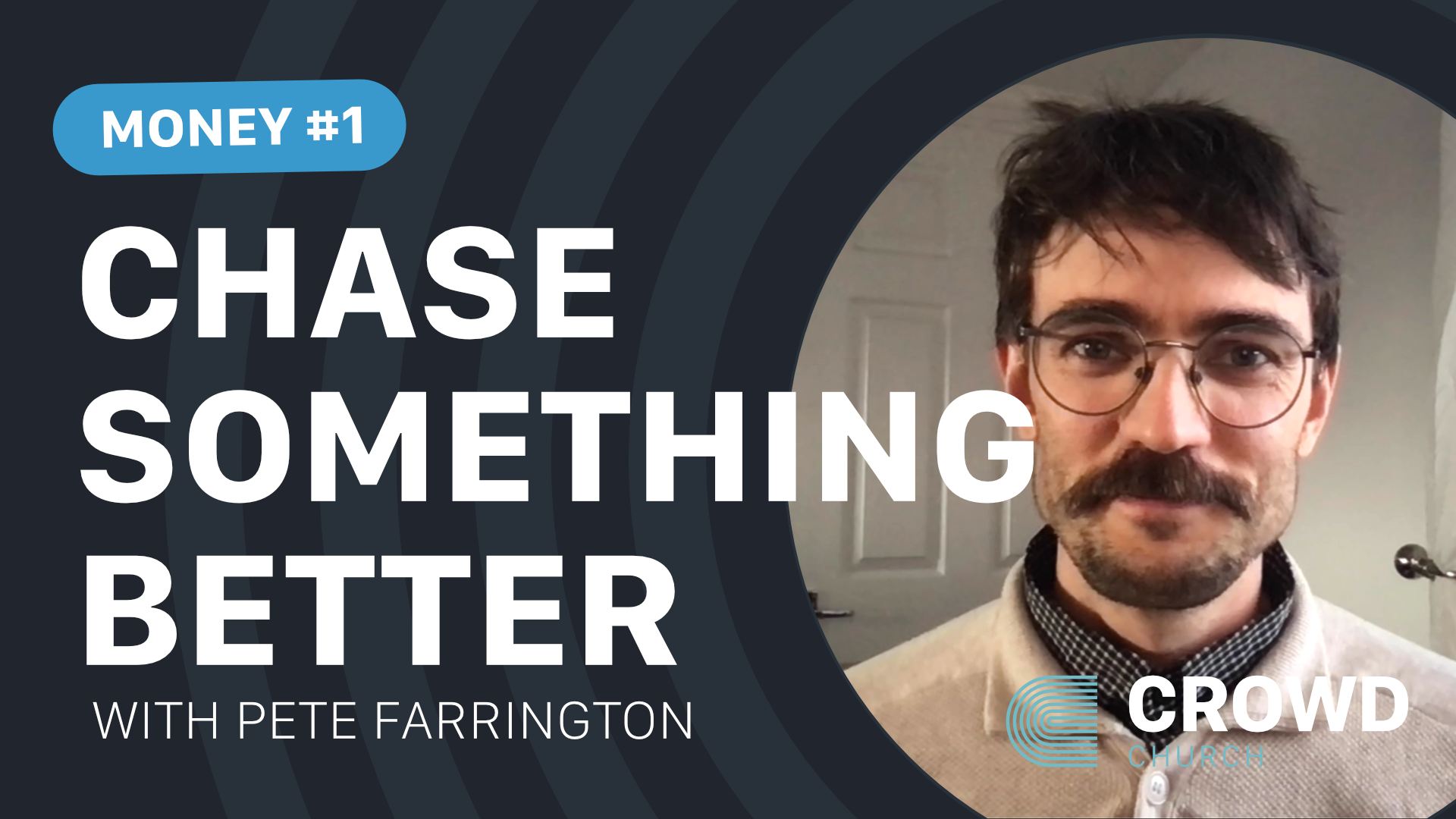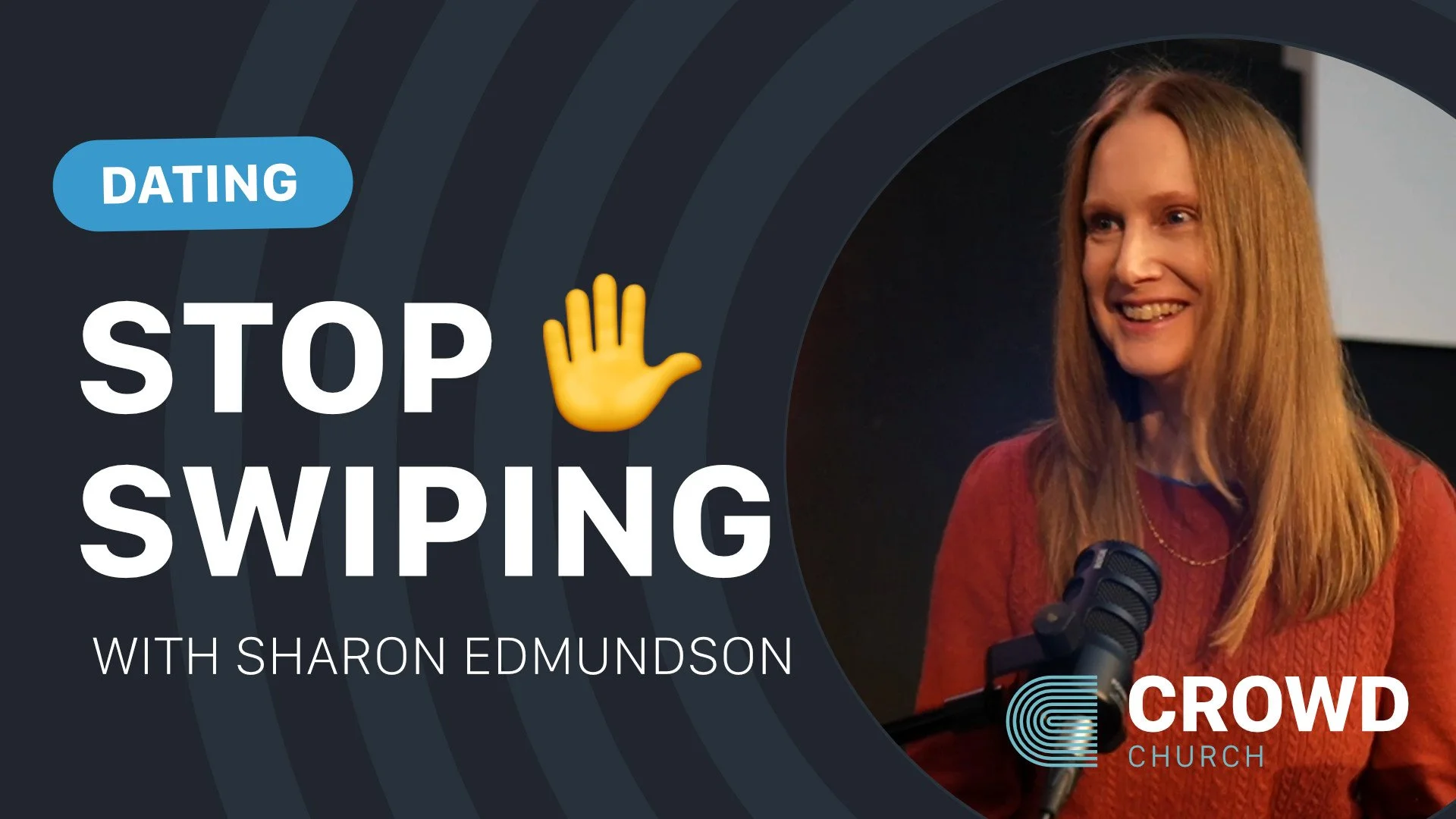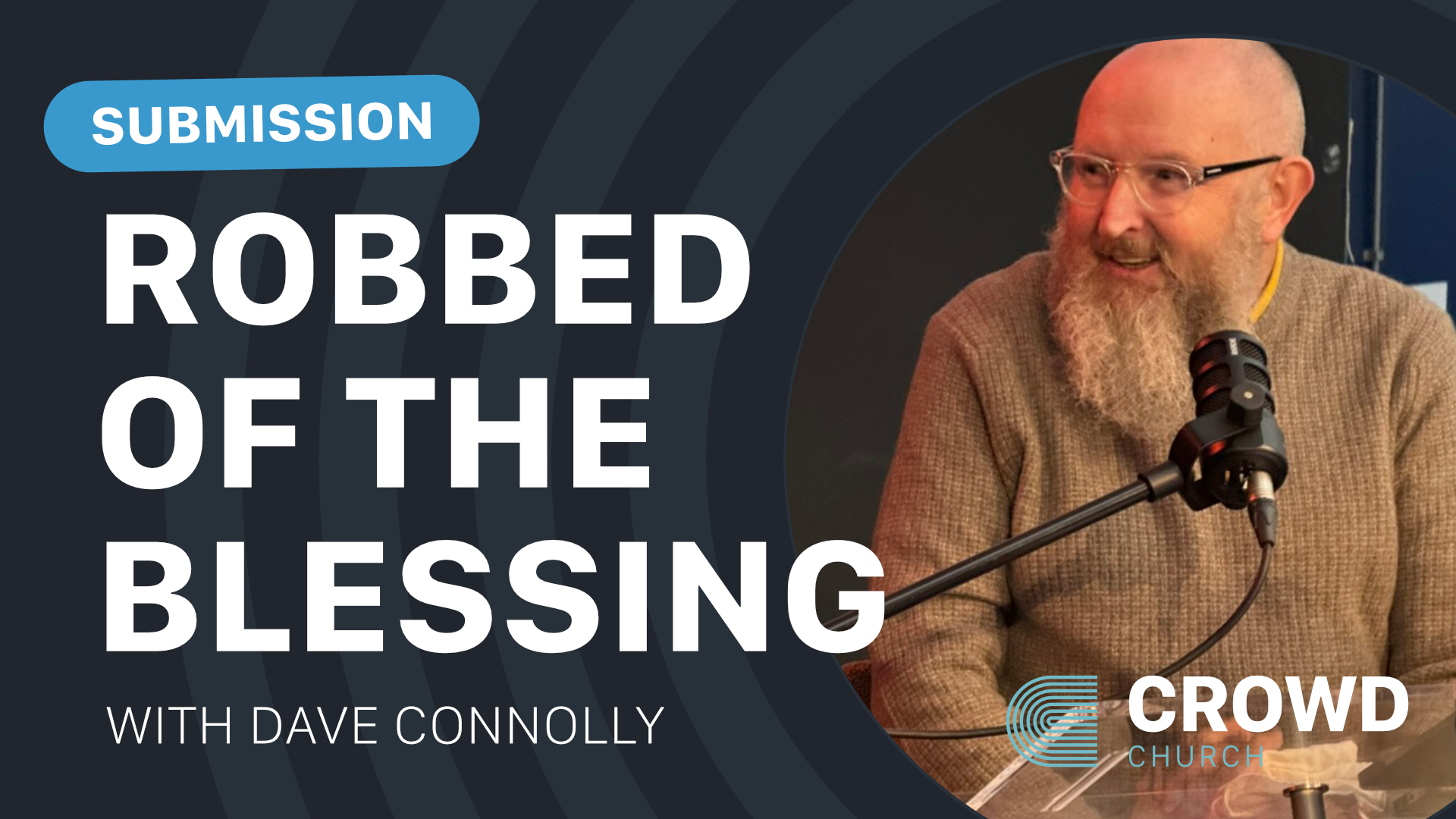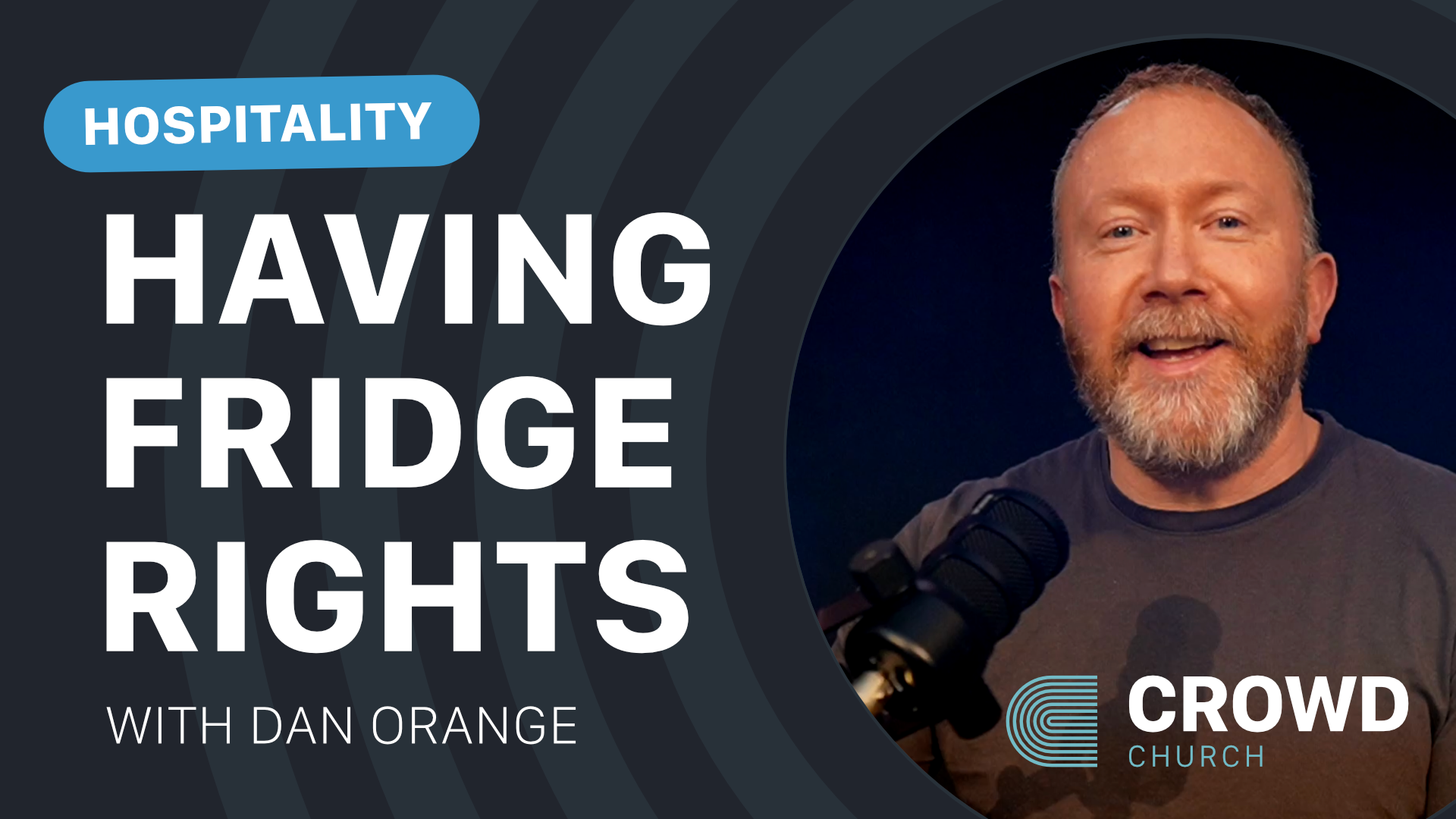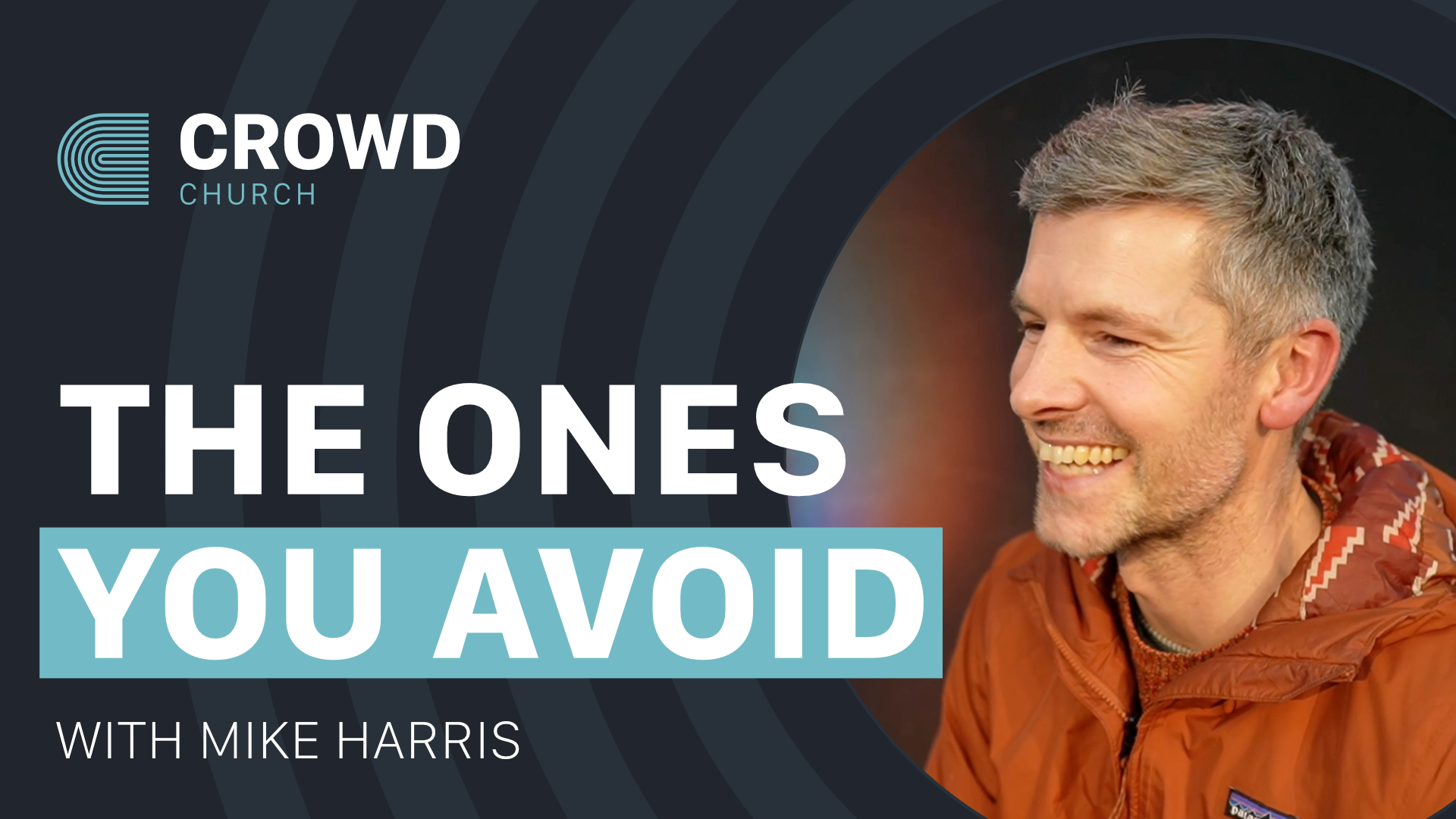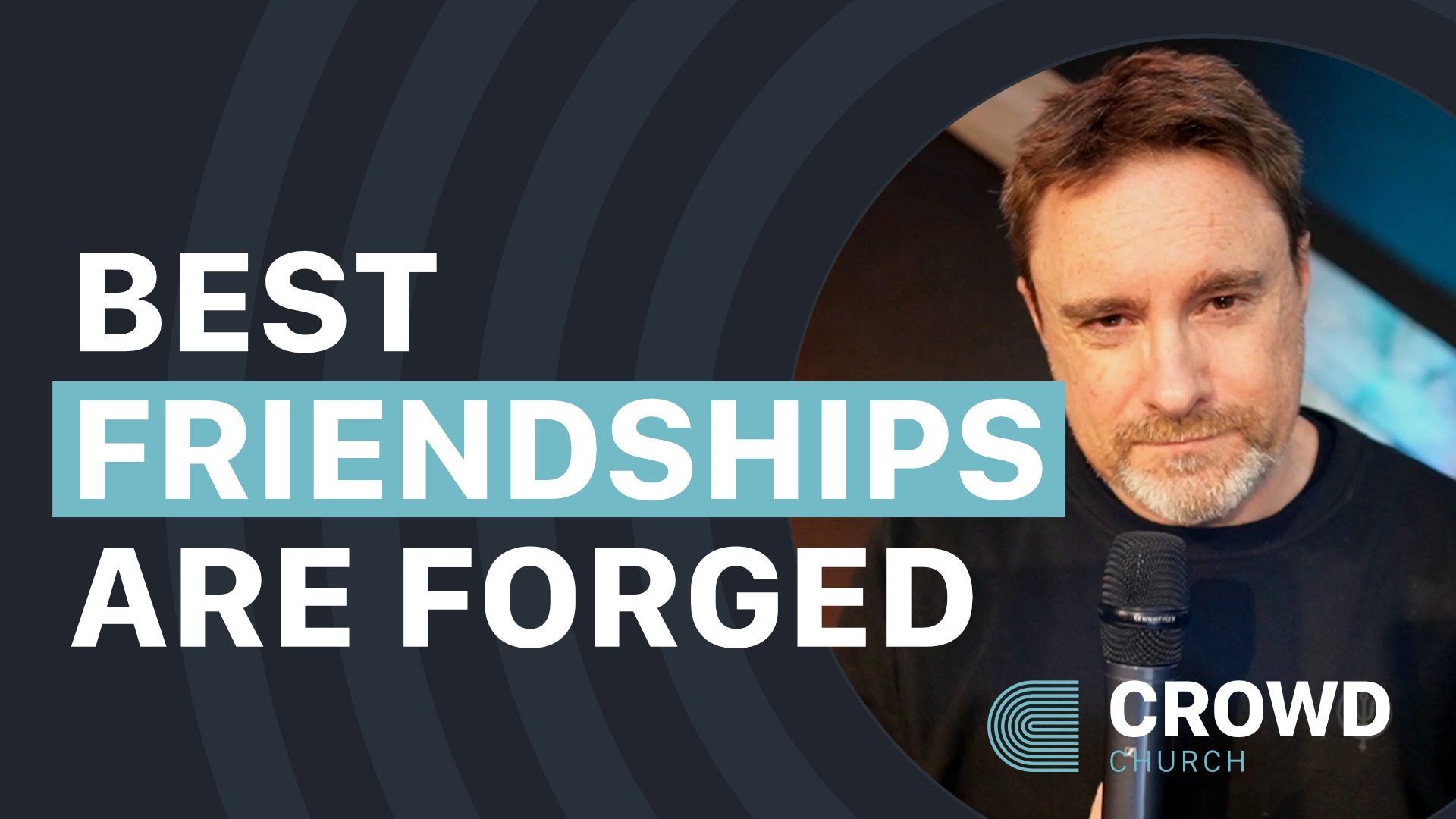When Being Connected Doesn't Stop You Feeling Alone (Sacred Rhythms Part 4)
When Being Connected Doesn't Stop You Feeling Alone
Ever scrolled through social media feeling more isolated than when you started? Or found yourself in a room full of people but still feeling completely disconnected?
Dan Orange gets it. In his exploration of the original Pentecost, he tackles something we all know to be true–that being globally connected doesn't guarantee genuine togetherness. What happened in that upper room 2,000 years ago offers a wealth of wisdom for our age of digital connection, yet relational disconnection.
The Problem with Modern Togetherness
Dan helps us see what's really happening in our hyper-connected world. We can FaceTime family in the next room (because we're too lazy to get up), wish someone happy birthday as they wake up on the other side of the world, and stay updated on global events in real-time.
Yet despite all these electronic connections, we can still feel distant, lonely, and unheard. Dan asks the crucial question that cuts through our Instagram-perfect lives - "Is that the same as being together?"
The answer, if we're honest, is often no. Connection without purpose, proximity without shared focus, networking without genuine care - these create the illusion of community without its substance.
God's Framework for Authentic Community
Scripture presents a different picture in Acts 2, where 120 people gathered together in one place. The word "together" here appears only four times in the entire Bible, and it conveys something much deeper than just location or activity.
This togetherness had three essential elements:
Purpose: They weren't just hanging out - they were there because of Jesus. Their shared focus on him created authentic unity, not forced fellowship.
Authenticity: No pretending, no performance. Jesus' mother was there alongside former tax collectors and fishermen. Real people with real stories, brought together by real transformation.
Overflow: When God's Spirit filled them, they didn't keep it to themselves. The community became outward-focused, sharing languages they'd never learned to communicate hope to people they'd never met.
First Fruits That Create Community
Dan challenges us with a practical question that cuts through religious theory: "What are your first fruits?" In other words, what are you giving God and your community? Is it your best and first, or your leftovers? It comes from the biblical practice where farmers would offer the first and finest portion of their harvest to God before keeping any for themselves.
This is not what you give after you've entertained yourself or met your wants, but what you offer first.
Time: The prime hours, not the leftovers after Netflix and scrolling.
Resources: Prioritise money over luxuries, and energy over distractions.
Attention: Genuine presence, not divided focus while checking notifications.
Here's what this looks like in actual life:
At work: Starting conversations about things that matter, not just complaining about Monday mornings
With family: Creating space for genuine connection, phones away during meals
In your neighbourhood: Knowing your neighbours' names and stories, not just their WiFi passwords
Online: Using digital tools to deepen relationships rather than replace them
What Changed Everything
Dan shares the remarkable story of Norman Meen, who found himself on a train in India, unable to speak the local language. A stranger approached, and they spent the entire journey in deep conversation. The next day, when Norman tried to greet the same man, his host explained: "This man doesn't speak English."
Whether God gave Norman the local dialect or gave the Indian man English for that journey, the barrier was removed for connection and gospel sharing. Dan reminds us that God still works in miraculous ways today—not just in the pages of Scripture, but in our everyday lives.
The original Pentecost reversed the Tower of Babel effect. Where pride and self-reliance had scattered people through confused languages, God's Spirit brought unity through supernatural communication. The message was clear: this community isn't exclusive to one group, but is intended for everyone.
Your Next Step This Week
Here are practical ways to move from digital connection to authentic community:
Identify your first fruits - What's the best you have to offer? Time, skills, resources, attention? Don't give God your leftovers.
Practice purposeful togetherness - The next time you're with people, put your devices away and focus on a shared purpose, not just a shared space.
Look for divine appointments - Ask God to show you someone who needs genuine connection this week. Be prepared to offer more than small talk.
Join something bigger than yourself - Whether it's Crowd Church small groups, community volunteering, or simply deeper friendships, step into real community.
Share your story - Stop curating your image and start sharing your journey. Authenticity attracts an authentic community.
The Big Picture: Free Gift, Real Cost
Dan makes a crucial distinction - the gospel is free, but it costs something. It's a free gift from God (we just say yes), but it costs us the things we rely on instead of him.
Real community works the same way. It's freely offered, but it costs us our independence, our perfect image, and our control over how others see us. The early church shared everything - not because they had to, but because experiencing God's love made them generous.
Like those first believers celebrating the harvest festival, we don't come to community in mourning for what we give up. We come together to celebrate what God has provided and are eager to share it with others.
A Question Worth Asking
What would change if you stopped seeing other people as potential content for your social media and started seeing them as family in God's community?
Dan reminds us that Crowd Church isn't just a podcast or livestream - it's part of the worldwide church of Jesus Christ. Whether you're alone in your house or listening on the train, you're not actually alone. You can be part of God's family, his authentic community that spans continents and crosses every human barrier.
Because here's what the original Pentecost teaches us - God's Spirit transforms festivals from worldly provision to supernatural provision. He takes our attempts at connection and offers us something deeper: a community that satisfies the soul, not just the scroll.
-
[00:00:00]
Welcome
---
Matt Edmundson: Well, hello and welcome to Crowd Church's non-live, live stream here in August. My name is Matt, and I just wanted to jump on here before we get into the talk and let you know what's going on. Now this. Isn't your usual Crowd service, uh, and that, if I'm honest, is completely intentional. If you are a regular Crowd, you will have twigged that this isn't the usual live.
There's no, you know, no me fluffing lines or figuring out technical difficulties, or Anna laughing at me when I do 'cause something has gone completely wrong. Uh, and you definitely won't be getting Conversation Street today. But here's the thing, August for Crowd is different, isn't it? It's always different for everybody.
Uh, half of us usually are somewhere hot trying to forget what the weather's like back home, especially if you live in England. And the other half is wondering why we didn't book something ages ago. Uh, so instead of pretending everything's normal, [00:01:00] we've done something a bit different. Yes. We like to do the non-live, live streams in August where the whole team gets to rest and recuperate.
Uh, but we obviously still want to put stuff out for people to connect with. And this year, our August talks, uh, are prerecorded as usual. The on live livestream. You can watch them whenever you like. Whether that's Sunday morning with, you know, a cup of tea or Wednesday afternoon when you're avoiding doing something important.
Whenever, we just don't mind. Uh, this August we're exploring something called sacred rhythms. Looking at how biblical festivals offers a completely different approach to rest, to celebration, and actually living life. Well, I thought this would be a really good thing to study. Whilst we do our normal holidays, like what does the Bible have to say about taking a holiday, uh, an inner culture that's obsessed with, you know, working ourselves into the ground and then collapsing for two weeks somewhere with [00:02:00] overpriced cocktails.
Maybe just, maybe the Bible has a better way. Maybe there's some ancient celebration, uh, that knew something that we've forgotten about. You know, like what does it actually mean to truly rest and to celebrate and to recover? So that's why we're doing this. So settle in. This one's just for you. No pressure to participate, no need to unmute yourself.
Just space to think about how God might want to reshape the rhythms of your life. So let's dive in.
Okay.
Talk with Dan Orange
---
Dan Orange: This is the talk about Pentecost. Um, these last couple of weeks we've been looking at different feasts in the Bible, and today we are looking at the Festival of Pentecost, also called the Festival of Weeks. Um, we name this because it was seven [00:03:00] weeks from Passover. So seven weeks plus one day equals 50, and Pentecost is the Greek word for 50.
I love it when I do these talks 'cause I get to learn new things. I always thought I knew, knew about Pentecost, but, and thought Penta something to do with five or 15. Well, it's 50. So Pentecost and Jesus, the Passover lamb had been killed for the sins of all. So he was the ultimate Passover lamb. And 50 days later, after he'd gone to ascended Up to Heaven, um, all his disciples plus his friends and family were all together in one room.
The Bible says there was 120 people, men and women. And the main passage we'll be looking at is at the beginning of Acts chapter two, and it starts like this. When the day of Pentecost arrived, they were all together in one place and suddenly they came from heaven, a sound [00:04:00] like a mighty rushing wind, and it filled the entire house where they were sitting and divided tongues of fire appeared to them and rested on each one of 'em, and they were all filled with the Holy Spirit.
And began to speak in other tongues as the spirit gave them utterance. Now, they were dwelling in Jerusalem. Jews devout men from every nation under heaven. So the Feast of Weeks was a big festival where all able-bodied Jewish males would travel to Jerusalem to give their first fruits offering of their harvest.
So Jerusalem was filled with people from all over Asia and the Middle East coming to Jerusalem. All different languages and a hive of activity, a huge celebration of God's provision. I've obviously been thinking about this and what my first fruits would be. If you were, if you were to give your first fruits, what would that mean to you and the first fruit fruits?
I understand in this day and age, as we're not all farmers and living directly off the land, it's things [00:05:00] that you can give before. You yourself, take from it. IE what can we give to God before we take it for ourselves? The first fruits back then were wheat and flour from their harvest, and it's the first fruits that that challenges me the first of my time, not the time after I've done the things that entertain or distract the prime time.
Perhaps we could call it early morning time or might be money. Money before my initial needs or wants or luxuries. And as with all good gifts, they cost us something, don't they? I mean, the best gifts that I like form a birthday for Christmas would be those that people have thought about, those that have cost them something.
Not in terms of money, but in terms of what they've, they thought about me. Ah, dad would like this. So back to the 120. They were together and they were together, not just in location and time. [00:06:00] The word translated together here is used, only used four times in the Bible. And it means not just location or activity, but also purpose.
One definition explains it that. Each time the word is mentioned, it's set in. Um, it underscores the divine design for believers to function in concert. Rather than isolation. Togetherness is something that in this day and age has different meanings and, and strengths. On the one hand, we've got this globally connected world, and it could be, I could be on the other side of the world and know what's happening up to date with war zones and climate events.
Um, I can be together with a friend and say, happy mor, happy birthday. Um, and he's just woken up in Australia on the other side of the world or. FaceTime with my family in the other room 'cause I'm too lazy to get off my butt. [00:07:00] Um, and at the same time we've got these, all these electronic connections, but is that the same as being together?
We can still be distant and, and lonely and sometimes feel unheard. And what was this togetherness then that was happening in the upper room? This place where these 120 people were, they were there for one reason. They were there because this man that they got to know, know over the last three years and some even longer, his mother, his family were there.
The man that had changed their day-to-day life, their under understanding of, of God. He had shown and displayed love and power, but now he'd gone. He'd gone from the earth. He was no longer physically with them, but their being together was because of him. Some translations ad they were of one accord, so they were together of one accord.
They had this same focus, these discussions, they were there because of [00:08:00] Jesus. And then this great event happened. The original or the ultimate Pentecost, God fulfilled his promise as he always does His word. Never returns to us void. That's what the Bible says it. When he promises something, it happens, and this is the promise.
The message puts it like this. I'm telling you these things while I'm still living with you. The friend, the Holy Spirit, whom the Father will send at my request, will make everything plain to you. He will remind you of all the things I've told you. I'm leaving you well and whole. That's my parting gift to you.
Peace. I don't leave you the way you used to be and left feeling abandoned, bereft. Don't be upset, don't be distraught. That's in John chapter 14. Isn't that great? We're not left abandoned. We're not left upset and send. Then so this event happens [00:09:00] and the Holy Spirit flooded the room anointing the believers I'll, I'll read it again.
And suddenly there came from heaven, a sound like a mighty rushing wind, and it filled the entire house where they were sitting and divided tongues as a fire appeared to each of them and rested on each one of them, and they were all filled with the Holy Spirit and began to speak in other tongues as a spirit, gave them utterance, God's spirit.
Okay with fire and wind, and when God's present comes, presence comes in the Bible, there's often fire. So when Moses met with God on the burning bush and when he received the commandments, there was fire. When Solomon dedicated. The original huge temple that was in Jerusalem to God, there was fire. The Book of Chronicles, where it talks about, it says this, when Solomon had finished praying, fire came down from heaven and consumed the burnt offerings and the sacrifices [00:10:00] and the glory of the Lord filled the temple and the priest could not enter the house of the Lord because the glory of the Lord had filled the Lord's house when all the children of Israel saw how the fire came down and the glory of the Lord on the temple.
They bowed their faces to the ground on the pavement and they worshiped and praised the Lord saying for his good. His mercy endures forever. And as we've heard in the last few weeks before the series on, um, festivals, we heard that our body is a temple of the Holy Spirit. So Jesus sent his Holy Spirit.
And he came and he dedicated these new temples, so no longer buildings. He dedicated these new temples with fire. And fire is, is a symbol as well, isn't it? It's always moving. It's consuming. Um, when it's used with precious metals or, or us, we are precious to him, he purifies. It's a reaction. It's, it's alive, it's [00:11:00] contagious as well.
And God's spirit can come. It came then and it come to us now and have you, have you experienced this? Have you experienced this fire as anointing? And as always with Crowd, this is the great thing. Just send in your questions and comments, WhatsApp, if you want to know more about this, this fire, this Holy Spirit, then this is why we're here.
So they're all together in the room. Gods. Promise is fulfilled. His Holy Spirit has come upon them. What's the next thing? They're all together. Do they keep it to themselves? Now, this community, it doesn't look inward. Of course, it's, it's overflowing now. It's good news. It needs to be spread far and wide, like wildfire.
And so the second part of the passage says, and they're all filled with the Holy Spirit and began to speak in other [00:12:00] tongues as the spirit gave the utterance. God didn't. God didn't only anoint with fire. He gave them new languages. And I think this is really interesting because if we go back to the beginning, beginning of history, beginning of the Bible in Genesis, the flood had happened and people had multiplied.
And there were many people all on the earth and, and a lot of them are all congregated in, in one place. And they all spoke the same language. And in Genesis chapter 11, you can, you can read it, they, they became proud. And they thought they were bigger than God, they would make a tower to heaven. And God saw, he saw their pride, he saw it wasn't good, and he divided them by language.
So they couldn't do this, this tower now. So they all dispersed. Um, it's amazing few verses in the Bible. So back, back now to, um, Jerusalem and Pentecost, we've got all these different speaking people coming [00:13:00] together for the festival. And, and then God fills, he's 120. With new languages. So they started to talk and all could understand Acts continues on like this.
It says now they were dwelling in Jerusalem. Jews devout men from every nation under heaven because they'd all come because of Pentecost. And at this sound, the multitude came together. And they were bewildered because each one was hearing them speak in his own language and they were amazed and astonished saying, are not all these who are speaking Galileans?
And how is it that we hear each of us in his own native language, IANS and Meads, and. Elamites and residents of Mesopotamia, Judea, Cappo, Deia, Pontus, and Asia Peria, I dunno how to pronounce that. F. Familiar. Egypt and the parts of Libya belonging to Cyrene and visitors from Rome, both Jews and ProSites Cretins, [00:14:00] Arabians.
We hear them T in our own tongues, the mighty word of God, and all amazed and perplexed saying to each other, what does this mean? Jesus reversed the Babel effect, this Tower of Babel that was being built. And he brought, um, languages, he reversed it and said, my spirit is for everyone in Babel. The one language was making them think they were better than God.
Um, but here the Holy Spirit comes to direct us back to God to enable this good news, this community to spread far and wide. And Jesus word never fails. It's for all. So, well, we've got, we've got fire, we've got multiple languages, and then Peter starts preaching. It's an, it's an amazing day and I just wanted to tell you a story because sometimes we can think, um, that miracles were just then, just happened, you know, back then.
Um, just for that [00:15:00] time. I wanna tell you, this story is about 20, I think about 20 years ago as a man called Norma Meen, who he was one of the leaders of the network of churches I grew up in. And he was in India to preach and he often went to Tal and to, to preach the gospel and he was getting on a train on his own and didn't speak the language and was struggling with directions, et cetera, what train to get.
And this was before smartphone's. GPS, we don't dunno how lucky we, you know, we've got it now. And he, um, he, someone saw him and started talking to him. He was a white man in a field of non-white faces. And this man came over and said, are you coming to preach at my church? And he was. So they got talking, he guided him onto the train and they were talking on the train, spoke all the way there.
It was a, a divine appointment. And he was very grateful for this man. And they got to their destination and split up. And Mr. Meeting was met by the [00:16:00] people he was due to stay with, excuse me, and went off with them. The next day he went to speak at church and saw the guy from the train and said Hi. And the man had no idea what he was saying.
And Mr. Meeting's friend who was with him said, what? What you doing? This man doesn't speak English. But they'd had a whole train journey talking together whether God gave Mr. Meen the local dialect, or he gave this uh, Indian man English. Just for that time. We'll never know. Um, but he broke down that barrier of language for the, for the gospel because God works today in miracles as well as in the Bible.
And I just love, I love hearing these, these stories, that it's not just limited to this amazing book. It's God's life and his power is, is now. He's come to change and be a part of our everyday lives. He's come to change us so that we can be [00:17:00] together. So Acts goes on to explain how the new church was together and all things.
No one went hungry. Those who had more than they needed sold it, sold it, and gave it to those that had need. It's transforming this good news. It's free. And it costs. So let me explain. It's a free gift to us from God. Jesus says, come let us make those bur. Let me take those burdens. Let me free you from your sin.
And all we have to do is say yes, but it costs, because sometimes we have to say to say, yes, we have to let go of the things that we hold dear, things we rely on and need, and we might need to give him our first fruits. So this small group of talks over the non-live, live stream are about, uh, festivals, times of celebration.
Those that celebrated the first fruits festival didn't come. They didn't come in mourning or sadness because of what they gave. They came to celebrate that they had [00:18:00] first fruits, that they came to this feast because of what God had provided. So it got me thinking, how, how can I be part of. This Pentecost, how can I celebrate, celebrate my gifts, and how can I give my first fruits, those things that God has provided?
How can I be part of his community? He came to bring life and life in all its fullness, not emptiness and not loads. He said, um, in that promise that he didn't abandon us. He's come with his Holy Spirit. And this is why we have Crowd Church. It's more than a club or a podcast or a live stream. It's part of the worldwide church of Jesus Christ.
It's part of the family of Christ. If he's our father, then we are family. Whether you are on your own in your house or listen to this on a, on a phone, somewhere, on the train, in the gym, you're not alone. You [00:19:00] can be part of his church, of his community, of God's family. So going back to my original point about the so-called sort of modern connected life we live is, is it authentic?
Is it a true representation of my life or our lives or the lives of influencers or celebrities or, or friends. This early church had come to be together to follow Jesus, to be accountable, to be authentic and real, to give their first fruits. They were, they forever transformed this festival from God's worldly provision to his supernatural provision of the Holy Spirit to all who will accept him, will accept him.
It's great though, isn't it, that God transforms. He uses these events and these festivals and, and fulfills them, and my [00:20:00] challenge for me. And for you is twofold. It's firstly, do you know God and this transforming gospel? And secondly, if you do, what are your first fruits and how can you use them?
Thanks very much.
Matt Edmundson: Well, thank you so much for joining us, and there we are. The end of this particular talk Now. If you're a regular Crowd, this is a bit where we go into Conversation Street, but like I said at the start, we're not doing that during August in a, what we call the non-live live streams where the team is just taking some well earned rest and just hang in with their families.
Uh, but do stay with us as we talk about holidays and rhythms and rest throughout August. And maybe there's just a different way to the standard default maybe. You know, God's got an [00:21:00] idea or two that we could learn from, you know, ways that God has designed life to perhaps work better for us. I think he probably has, uh, and maybe this week you wanna try, you know, something from the talk.
What stood out to you. It might not even be dramatic. It could be just a tiny step towards that kind of rhythm that actually brings you life rather than draining it. What is it gonna be? Uh, if you're still watching this, write it in the comments. Um, even though we're not live, it's always good just to write things down.
And of course, you can reach us on our website at www dot Crowd Church. Now, we're gonna be back next Sunday, uh, with another talk. If it's in August, it's gonna be an on live, live stream. If this is the last talk in August or August in August, we'll be back to, uh, the usual way of doing things in September.
But in August, do say stay with us as we continue journeying through the sacred rhythms. Uh, same time, same non-live stream approach. So that's it. Uh, [00:22:00] but for now, wherever you are, where whatever living room, you're watching this, or wherever you're on a beach on a plane, we don't mind. That's a beautiful thing about digital church.
Uh, just remember that rest isn't something you have to earn. It's something that God simply gives you. See you next week.
More From The Becoming Whole Series
At Crowd Church, we are committed to creating a space for you to explore the Christian faith, regardless of where you are on your faith journey.
What happens at Crowd Church?
Every week we livestream our online church service and release a new story on What’s The Story Podcast. We have weekly online community groups that meet up and all of that good stuff. You can find out more about everything that goes on at Crowd by browsing through this site, and you can reach out to us via our contact page.
Come and Join In!
Are you interested in joining in with what is happening here at Crowd? We would love to meet you!
Come and join our in-person service in Liverpool.
Join in with the Church Livestream
Subscribe to Crowd Church Podcast & What’s the Story Podcast
Follow us on Instagram
Subscribe to the YouTube Channel
New to church? If so - check out the New Here link.
Any questions? Please connect with us via our Contact Page, or via WhatsApp: +44 7984 530 429



